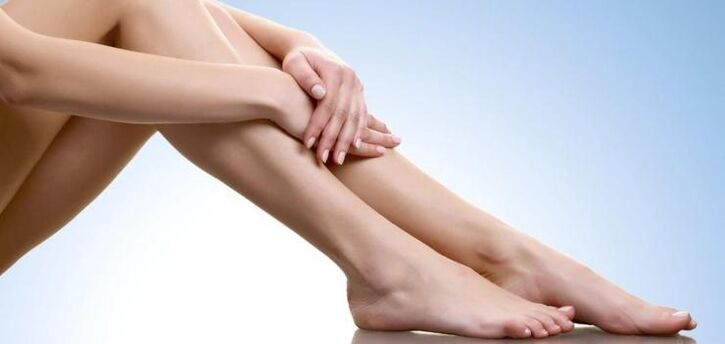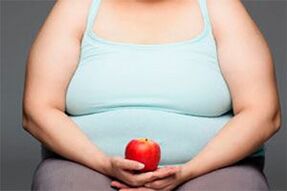
In the modern world, a large percentage of the population suffers from varicose veins.This pathology has been included in the list of "diseases of civilization" by the World Health Organization.The disease is more common in women due to lifestyle and genetic predisposition.The disease affects not only the elderly, but also the young.For varicose veins, contraindications and restrictions are quite extensive, failure to comply with which can lead to serious consequences.
When the first signs of varicose veins appear, you need to be examined by a surgeon and strictly follow his instructions.It is not necessary to treat yourself, this can lead to irreversible changes.
Degrees
Varicose veins of the lower extremities appear gradually.There are 3 degrees.
Compensation phase.Legs become swollen and tense, especially after walking or spending a long time standing.Possible burning and pain in the vessels of the lower limbs and cramps in the calf muscles.Subsequently, a small vascular network appears, manifested as “stars”.It is recommended to minimize a sedentary lifestyle and engage in preventive exercises. Women should avoid wearing high-heeled shoes.
Women should avoid wearing high-heeled shoes.
Undercompensated stadium.At this stage, leg pain intensifies, cramps and swelling become more intense.The veins become even more noticeable, swelling to the knots with a bluish tint;the wall becomes thinner and the vase could burst.The skin becomes flaky and itchy in the affected area.It is impossible to comb the localized area, this can cause microtraumas.It is best to avoid tight underwear and tight clothing.You should refrain from intense sports and heavy lifting!
Decompensation stage.This phase is characterized by difficulty in the outflow of blood from the veins, which leads to severe swelling of the lower limbs.Trophic ulcers and long-lasting eczema may appear.This phase is often accompanied by inflammation and thrombosis of the blood vessels.If the lumen is blocked by a thrombus, surgery is required.During the decompensation phase it is mandatory to wear compression garments.Intense physical activity should be avoided.
Limitations
In case of pain, the patient, if he is overweight, needs to lose weight.A diet is needed to reduce the level of cholesterol in the blood, which clogs the lumens of blood vessels and causes blood clots to appear in them.

If you have the first signs of varicose veins - itching, burning, numbness of the muscles, you need to give up alcohol and reduce salt intake.These products contribute to the formation of lipoproteins on the walls of blood vessels and the development of atherosclerosis.
For varicose veins it is advisable to choose comfortable and "correct" shoes.Wearing shoes that are too tight, especially those with high heels, contributes to leg congestion.
An orthopedic doctor will help you choose orthopedic insoles and recommend compression garments and special socks.
If the integrity of the skin is compromised, hirudotherapy, acupuncture and physiotherapy are contraindicated.
Contraindicated procedures
For varicose veins, hot baths are not recommended;it is better not to visit baths and saunas.
In the initial phase of varicose veins you can take a contrast shower and take foot baths.
At an advanced stage of the disease, massage, especially cupping and honey, cannot be performed.Compresses with various cosmetic preparations are prohibited.
Hair removal on the legs is possible in the absence of eczema and ulcers, but sugar and wax strips should be excluded.
Heating compresses are contraindicated;they can aggravate trophic ulcers or cause allergies.
Prolonged exposure to the sun and solarium is extremely undesirable.Tattoos should not be placed on affected areas of the body, especially if the integrity of the dermis is damaged;this can lead to serious complications.
In the decompensation phase, warm-up physiotherapeutic procedures are not prescribed.Magnetotherapy and darson evaluation help in the initial stages.
Prohibited drugs
Women with varicose veins should not take hormonal birth control pills.They contribute to the thickening of the blood and there is a risk of blood clots.
You should not take diuretics or other drugs that help remove excess fluid from the body;this can negatively affect the metabolic process.
The taking of any medications must be agreed with the doctor.
Physical activity
For mild varicose veins, light physical activity is recommended.Hiking and cycling, swimming, yoga and qigong exercises are useful.
If there is no swelling of the blood vessels, you can practice callanetics and stretching.

In advanced cases of pathology it is strictly contraindicated:
- long-term static load;
- lifting weights exceeding 5 kg, weightlifting and wrestling;
- outdoor sports games, such as football or volleyball;
- mountaineering and hiking;
- professional dance lessons;
- fast running, especially over long distances;
- parachuting;
- stepaerobics.
Prohibited products
It is essential that a person suffering from varicose veins follows correct eating habits.
Exclude:
- fatty foods;
- pickles;
- smoked meats;
- marinades;
- canned food
Do not consume sweets, flour and butter products, products with a high palm oil content.These foods cause the onset of atherosclerosis.
The diet of a patient with venous disease should not include fast food, processed foods, carbonated drinks, coffee and strong tea.
It is better to limit salt and spicy or too spicy spices, celery and mint.
Dietary recommendations
With varicose veins, a sick person needs to eat small portions, but often, up to five times a day.It is especially important for overweight people to monitor their diet.Due to excess weight they run the risk of thrombophlebitis resulting in embolism of the blood vessels.
Products should be subjected to gentle heat treatment, preferring baking, steaming and boiling.Smoking and frying food should be avoided.
A patient with varicose veins should drink the required amount of fluid per day, about 2.5 liters.If you do not follow the drinking regimen, the blood thickens and blood clots can form.
General recommendations
To improve the quality of life, a person suffering from venous insufficiency must respect some rules:

- with advanced varicose veins, intense physical activity is prohibited;
- sit and stand less, move more.If a person works while sitting, periodically stand up and stretch;
- eliminate constipation, which leads to congestion in the pelvic organs;
- eat properly and fully, eat fresh fruits and vegetables to obtain the necessary microelements and minerals;
- if there is congestion in the lower limbs it is necessary to wear compression clothing;
- give up alcohol, even in small quantities, and smoking.These bad habits lead to sclerosis of the lumen of the veins;
- take anticoagulants as prescribed by your doctor;
- complete sleep, at least 8 hours;
- elevated position of the legs while lying down;
- preventive gymnastics.
You can alleviate the symptoms of the disease with the help of horse chestnut tinctures, angioprotective and cooling ointments and pain relievers.To improve blood circulation, the necessary drugs, vitamins C, E and P, and antispasmodics are used.
At the first signs of pathology it is necessary to contact a surgeon or phlebologist.Self-treatment is completely unacceptable.
The use of pain-relieving ointments and tablets briefly relieves a person's condition, but does not cure it.Only a specialist can evaluate the extent of the disease and direct the patient to the necessary tests and diagnostic procedures.Based on the results of the examination, appropriate therapy is prescribed.
In case of rupture of the vein or thromboembolism, surgery is indicated, which cannot be delayed, as these conditions put the patient's life at risk.



















